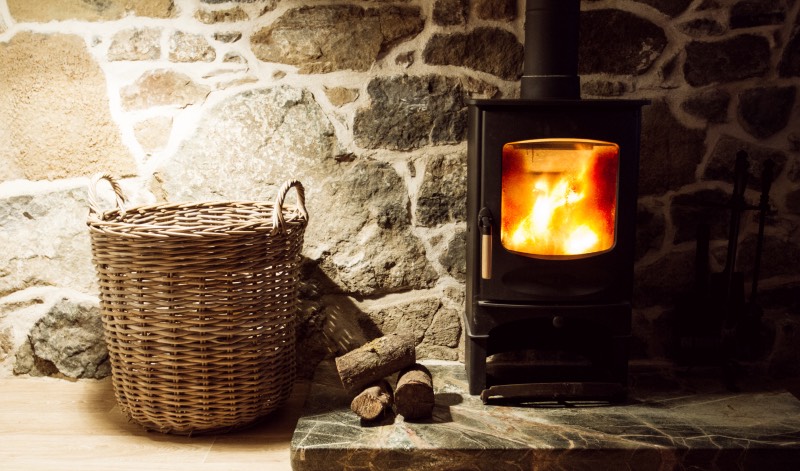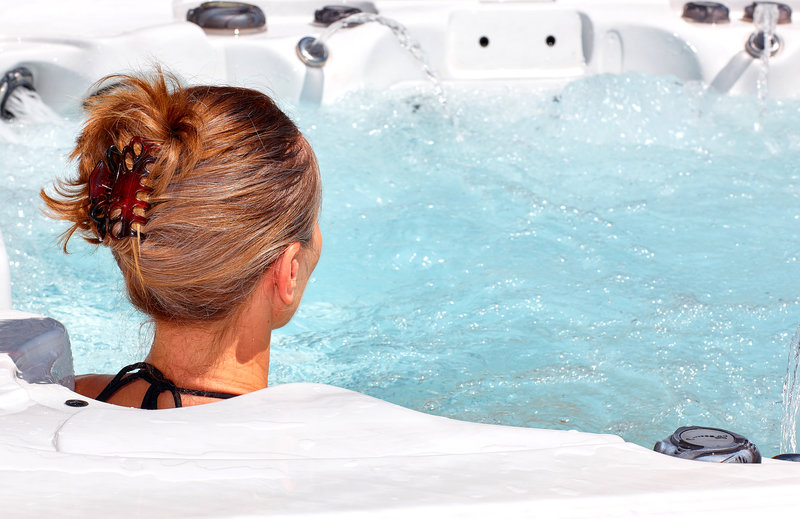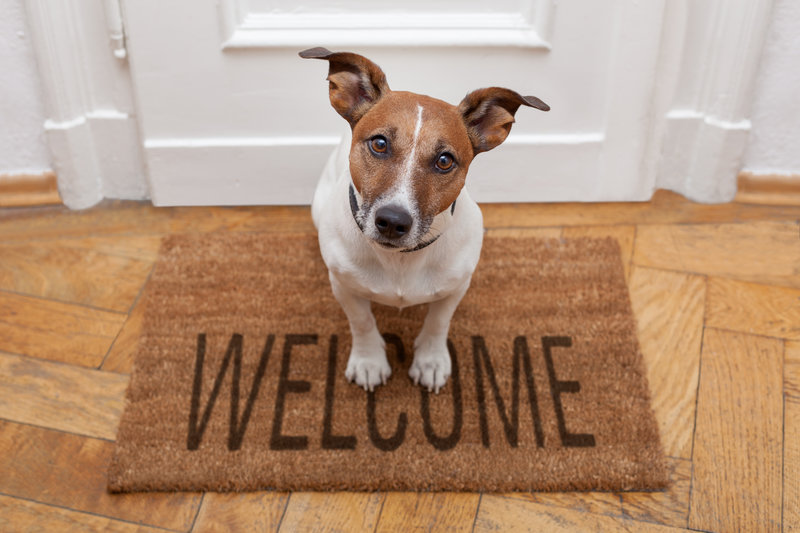
Like starting any new business venture, setting up a holiday let for the first time is an exciting, but also slightly daunting, prospect. You might be chomping at the bit to get started on a renovation project. Or perhaps your property is pretty much ready to go and you are busy browsing the shops for finishing touches such as cosy blankets, pretty cushions or treats to put in the welcome hamper. Or you might be at the slightly nail-biting stage of taking your first bookings and welcoming your first guests. Whatever stage of the journey you are at, it is likely that you will be faced with a number of different questions along the way.
Maybe you are wondering whether it is worth installing a wood burner or hot tub as part of the renovations. Or you aren’t sure if you should you keep the décor neutral or get creative with some bold colours. Once the property is ready for guests what is the best way to get bookings? Should you sign up with an agency to get the ball rolling? What about using OTAs? Or what is an OTA? Or a booking management system? Do I need them and if so which one? Do I need a website? Should I engage with different social media platforms? What legislation do I need to be aware of? How do I know if an enquiry is a scam? What can I do to increase my bookings? And what have I forgotten?!
The list can go on and on! Drawing on our own experience of setting up holiday lets this article aims to answer some of these questions. It is worth pointing out that there isn’t always a right or wrong answer. What is right for one owner and their property won’t be right for someone else. However, there are certain laws that we all need to adhere to, systems and procedures that will make our lives easier and handy tips and hints that can help us increase our bookings and run a successful business.

How should I decorate and furnish my holiday let?
Whilst some of us will relish the thought of decorating an entire house and kitting it out from top to bottom in matching seaside hues or contemporary designs, others will dread the thought of endless colour charts, fabric samples and trips to IKEA. If you fall into the latter camp, the good news is that sometimes less is more! Whilst you will never appeal to everyone, generally light and neutral colours tend to appeal to a wide range of people. Whilst you should add a few homely touches to give your property a bit of character and make it feel welcoming you don’t want to fill it with clutter. If you are wondering if your old collection of African elephants that are sitting in the attic would look nice above the fireplace the answer is likely to be no!
Be practical. If you are going to welcome dogs you will want solid floors that can be easily cleaned. Whether you expect guests to keep dogs off your sofas or not, you need to assume that not all rules will be adhered to so choose sofas that are a practical colour and are made from a fabric that can be easily cleaned. It’s always a good idea to provide a few throws as well. If you want to appeal to families with kids use wipeable paint on the walls and minimise furniture with sharp edges.
We all like to be cosy. Therefore, if at all possible install a wood burning stove. The idea of snuggling up in front of a fire with a glass of wine and a box of chocolates after a day out exploring will make your holiday home more attractive during the winter months. Not only is it likely to increase out of season bookings but it is also likely to save on your heating bills. If guests are chilly they are unlikely to have any quarms about whacking the heating full on for the duration of their holiday.
For more ideas on how to furnish each room in your property read our guide on how to set up your holiday cottage here.

Should I install a hot tub?
The pros and cons of installing a hot tub in your holiday home is a subject that is much discussed amongst holiday home owners. For some owners, the extra bookings and increased profits outweighs the extra cost and work needed to install and maintain a hot tub. For others, especially if you do not live on site, the extra hassle just isn’t worth it.
There is no doubt that having a hot tub is a big draw and is likely to increase your bookings. Everyone likes a little bit of luxury whilst on holiday and for a lot of guests the idea of sitting in hot bubbles under the stars with a glass of fizz is the perfect way to end the day. In an increasingly competitive market installing a hot tub therefore makes a lot of sense for holiday home owners. However, it is not just the initial cost of installing a hot tub that you need to consider. In order to ensure that you comply with health and safety guidance which, amongst other things, will ensure your hot tub does not become a breeding ground for bacteria such as legionella which can cause Legionnaire’s Disease, it is essential that you follow strict guidelines regarding water quality and the ongoing care and maintenance of your hot tub.
The answer to whether you should install a hot tub or not is not black or white. You need to consider who you are marketing your property to, whether you have the time to maintain it (or employ someone else to if you do not live close by) and whether you need one to gain a decent level of bookings.

Should I accept dogs?
Similar to installing a hot tub, there is no right or wrong answer regarding accepting dogs. Again, having a pet friendly holiday home will undoubtedly increase your bookings. One of the advantages of holidaying in the UK is that guests can bring their four legged friends with them. If your holiday home has an enclosed garden and is surrounded by beautiful countryside walks and large sandy dog friendly beaches you are likely to hugely reduce your number of bookings if you don’t allow dogs. However, not all properties lend themselves to being dog friendly. If you own a luxurious town house with cream sofas and no garden it is likely to make sense to keep it dog free. In addition, some people have allergies to pets so there is small market for ‘pet free’ properties (although you may want to read on to find out your legal obligations with regard to accepting assistance dogs).
If you are going to accept dogs you should try and make your property as welcoming for dogs as possible. As well as providing water and food bowls, throws for the sofas, doggie towels for wet feet and a few doggie treats, it is a good idea to leave a list of walks, dog friendly attractions and dog friendly pubs, cafes and restaurants. You will need to allow extra time for cleaning and consider what your ‘dog rules’ are. Some owners do not allow dogs upstairs (or they ask guests to bring their own bedding if their dog is used to sleeping with them) and they ask that dogs are not left alone in the house. Whilst a barking dog is not only likely to be unpopular with your neighbours it is possible that an upset dog will start to scratch or chew its way through your nice new house!
It is also worth noting that all holiday homes are legally obliged to accept assistance dogs.

What legislation should I be aware of?
Unfortunately setting up a new holiday house isn’t all about making things look pretty and taking bookings. There are also some slightly less exciting, but equally as important, rules and regulations that you need to ensure you have adhered to. From gas safety checks and fire risk assessments to music and film licences and Energy Performance Certificates,the list of relevant legislation that you need to be aware of is pretty comprehensive. Whilst in most cases you will get by if you apply a good dose of common sense and strive to achieve ‘best practice’, it is a good idea to familiarise yourself with the laws surrounding your responsibilities as a holiday home owner.
What is the best way to start getting bookings?
Once your holiday let is all set up and ready to go you will need to get some bookings in the diary! Getting bookings is arguably the number one obsession of holiday home owners. As there are so many different ways to advertise your property it can understandably be a slightly overwhelming task to work out where to begin. The first question is whether to let your property independently or not.
Should I start off with an agency?
Some owners, especially those who already have a full-time job, might prefer to start off using an agency. If you decide this is for you make sure you shop around, do your research and read the small print. You might find that a smaller local agency is more suited to your needs than a larger one and if you are looking to become more independent over time it might be possible to find one that will allow you to start taking your own bookings too.
If you prefer not to lose a considerable percentage of your income on agency fees (which are typically around 20%) and you have enough time to market and manage your property yourself, you should consider letting your holiday home independently. This also allows you to stay in control of your bookings, communicate with guests before they arrive and gives you the flexibility to holiday in your property yourself without being restricted to limited owner bookings.
What are OTAs?
This is where for most owners OTAs come in. If you are looking at setting up a holiday home it is likely that you have come across organisations such as Booking.com, AirBnB, HomeAway and TripAdvisor (to name just a few). These are all OTAs, or Online Travel Agents. OTAs are third party booking sites that allow guests to search for and book a holiday online. They are popular with holiday home owners as their vast marketing budget allows them to monopolise search engines, therefore creating the potential to increase enquiries and bookings.
Which OTAs are the best to use?
Different OTAs work well for different properties located in different areas. Try searching for holiday cottages in your area and see which OTAs are at the top of the search engine results. Speak to other local holiday home owners and see what works best for them. Some owners will advertise on a few different OTAs whilst others will just use one. It is worth giving one or two of them a go and see how you get on. They are relatively easy to set up and most of them are commission only based so there are no start up fees. You set your own rates (I would recommend making yourself a strong coffee before you tackle the job of rates!), select which cancellation policy suits you best and decide what dates your property is available to book.
However, not everyone is a fan of OTAs. As they have grown larger they have become less flexible, charge higher commission rates (and extra ‘service fees’ to the holiday maker which can overly inflate your rates) and provide stricter payment terms to the owners, often withholding the guests’ payment until after they have arrived. Sometimes it is hard to keep up with all the different terms and conditions and it can seem as if OTAs are a law unto themselves. As holiday home owners have become increasingly exasperated with OTAs, more and more people are expanding their marketing tools to encourage direct bookings.

What are direct bookings?
Direct bookings are when the guest books directly with you rather than going through a middle man such as an agency or an OTA. Not surprisingly, we all love direct bookings! Not only do you (and/or your guests) save considerable money, but you have direct contact with guests before they book and you aren’t subject to anyone else’s payment terms or cancellation policies.
What is the best way to get direct bookings?
There are lots of different ways to encourage direct bookings. Firstly, you should consider subscribing to companies such as Independent Cottages where you pay a small one-off annual subscription to advertise your property. Your advert will include your contact details and website address so the guest simply gets in touch and pays you directly with no additional service charges or commission fees.
Do I need my own website if I want to take direct bookings?
You do not need to have your own website but we do recommend having one. It is incredibly difficult to market your property and take direct bookings without your own website. Even if you rely solely on OTAs it is a good idea to have a website as well. You don’t need a huge amount of technical skills to build your own, but if you don’t have the time, or technology really isn’t your thing, it is easy to get a website designer to do this for you. It is important to have good photos, an up to date availability calendar and where possible, add guest reviews and blogs about your local area. Make sure that your website is compatible with tablets and mobile phones as more and more people are using their phones and devices to browse the internet and book holidays.
In an increasingly competitive market it is also important to accept credit card payments. Cheques are outdated and recent stories involving fraudulent bank transfers and scams have left guests preferring to pay by credit card which is both more convenient and secure. If you accept instant bookings you are also more likely to ‘catch’ potential guests whilst they are in the mood for booking, especially those in a different time zone. By the time they read your response back at their desks on Monday morning they are likely to be thinking about something else. There are a number of different third-party payment platforms. Stripe, Square, SagePay and TransferWise are a few of the most popular ones used by holiday home owners.

Is it worth using social media as part of my marketing strategy?
In a nutshell, yes. If you are looking to expand your marketing to increase direct bookings you should definitely consider using different social media platforms such as Facebook, Twitter and Instagram. Billions of people use social media so the potential to communicate with past, future and prospective guests is huge. It is worth noting that whilst you might be familiar with posting on your personal social media accounts, you might have to work a little bit harder to ensure your professional posts are effective. Try to keep your posts interesting! Don’t just ‘sell’ last minute holidays. Post information about local businesses, up coming events and if possible write blogs about your local area and share these on social media too. Make sure you post regularly and where relevant use hashtags and share content or retweet other posts. For more information on how to use social media as a marketing tool for your holiday rental read our article here.
Facebook groups are also becoming an increasingly popular forum for guests to book their holiday. Whilst there are some generic groups such as book your holiday direct with the owner, you will also find ones for specific geographic locations as well as groups for dog friendly holidays and last minute and discounted breaks. It is worth following these groups and posting and commenting where relevant.
Don’t despair if it takes a while for you to get a booking through social media platforms. It can be a slow process. If you create your own business Facebook page you should start getting a few ‘likes’ which over time will hopefully translate into bookings. You might find someone follows your page for a year and then out of the blue responds to one of your posts and makes a booking. Whilst it can be a bit of a slow burner it is worth persevering if you can. You will also find ‘owners only’ groups on Facebook which can be a great way of communicating with other holiday home owners. We are a pretty friendly bunch who are more than happy to answer questions and share ideas. No question is ever too small to ask and you can tap into a vast array of knowledge ranging from tax returns to getting stubborn stains out of your carpets.
What about repeat bookings?
If you are just starting out you aren’t going to have many repeat bookings in the diary. However, encouraging repeat bookings is definitely one of the best ways to get direct bookings. Not only are they cheaper and less time consuming but if someone loves staying with you they are more likely to tell their friends and family how great your holiday house is. There is no secret formula to encourage guests to return to your holiday house but here are a few handy hints and tips that might be helpful.
It is worth noting that whilst we all love direct bookings, it does takes time and patience to build any successful business so don’t expect instant results overnight. To begin with it is often a good idea to use an OTA at the same time as building up your direct bookings. You will find that some guests originally see your holiday home on an OTA but they then find your website and book direct. Also, instead of setting your rates for the whole year with OTAs, you can block out your peak weeks that you can be confident of selling directly. I know a few owners who only make available any last minute or out of season weeks on OTA websites. The advantage of managing your own bookings is that you can be totally flexible and chop and change your marketing strategy, including what you advertise where, as you wish.
What is an online booking management system and which one should I use?
Instead of creating your own completed system of excel spreadsheets and ‘do to’ lists, an online booking management system will help you manage the everyday tasks of the booking process, starting from when a guest first makes an enquiry and finishing when you return their deposit after their holiday. Whilst there are a number of different systems that you can choose from, you can find a summary of the five most popular booking management systems here. Whilst different systems work in slightly different ways, you can expect each one to remind you when tasks are due, send invoices, booking forms and arrival details, synchronise availability calendars and enable you to take online payments.

How do I recognise a scam?
Unfortunately, scammers exist everywhere and as we become increasingly reliant on technology there are very few of us who are immune to these fraudster’s tricks. The holiday letting sector is no different. There are a few different sorts scams that you should be aware off. Some scammers will use phishing scams which encourage you to click on a link or log into what you believe is your account, whilst others will use vishing scams where the principle is the same, but the scammer will phone you rather than send you an email.
There are a few ‘typical’ holiday letting scams such as the overpayment scam or scammers posing as potential guests asking you questions such as where your property is and asking you to click on (false) links. In the past, emails from scammers tended to be littered with spelling mistakes or poor grammar and they were often from overseas. However, scammers are getting more savvy and in turn some of their emails have become harder to spot. It is also possible to get a totally genuine email from an overseas guest who doesn’t speak very good English. If in doubt, never click on any links unless you are 100% sure that they are genuine, or request a phone number to speak to them.
Don’t let the thought of scammers scare you. Emails from scammers are likely to be few and far between – just as you might receive the odd one in your personal inbox. However, in order to ensure you don’t fall for any of these tricks it is worth being aware of the latest scams. Discussion forums such as Lay My Hat or Facebooks groups are a good way of keeping in touch and up to date with the latest holiday letting advice and ideas including the latest scamming tricks.
Are you ready to take the plunge?
Setting up a holiday home is an exciting and rewarding process. After many years of managing my own holiday home, I still get that excited buzz each time I take a booking. Along the way there will be highs and there will be lows. You will get some things (or hopefully lots of things!) right and you are also likely to make a few mistakes. You might have a bumper year of bookings one year which could then be followed by a quiet one the next. The ever-changing market will keep you on your toes and you need to be ready to adapt your property and marketing strategy accordingly.
However, one thing never changes: Owning and managing a holiday home is certainly never dull. There will always be questions to ask, new things to learn and guests that will seek to amaze you. If you are in the process of setting up your own holiday home we hope that this article has answered some of your questions. If you have any more, please do free to get in touch with us at Independent Cottages and we will do our best to answer them. Finally, good luck and enjoy!

Hi Sarah,
Many thanks for this excellent and very helpful article. We are shortly to be new holiday ‘letters’ and will be in touch with you to advertise the property.
Many thanks,
Richard
Hi Richard, good luck with your new venture and we look forward to hearing from you and hopefully working with you.
Hi
Do all the rules and regulations including rates etc ,apply to an annex type holiday let that is attached to your permanant home?
Many thanks in advanced Kathryn
Hi Kathryn, in terms of health and safety (and insurance), you are renting out a property so would be classed as a landlord and have a duty of care to comply with legislation to ensure you keep guests (and staff) safe. With regard to council tax (vs business rates), I would recommend you speak to your local council for clarification.
Nice intro Sarah thanks, we’re looking to relocate away from the home counties to either the lakes, highlands or peak district to set up a letting business. Did you just set up where you were or did you relocate to where the demand is? Any thoughts on good sources of market research for regions?
Steve
Hi Steve, they are all popular holiday areas. I guess it really depends on your main motivation behind the purchase. We have many owners who live in good locations for holiday letting and set up where they live; people who move to a new area to set up a holiday rental business in a tourist destination and owners who live in different locations to where their holiday home is located. For some owners, the motivation is purely financial, while for others, it can also be pleasure, setting up a rental in a location they themselves want to holiday in. Whatever you decide, good luck and I hope we can assist you in the future with advertising.
What can I put in my terms and conditions to protect myself from guests who refuse to leave?
Hi Sue, you may want to speak to a law firm who specialises in short-term letting if you need help with your terms and conditions.